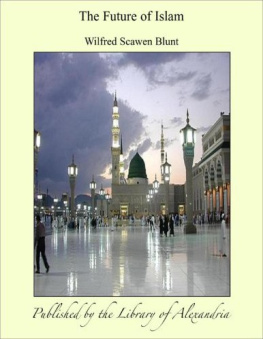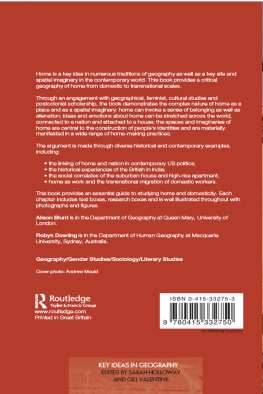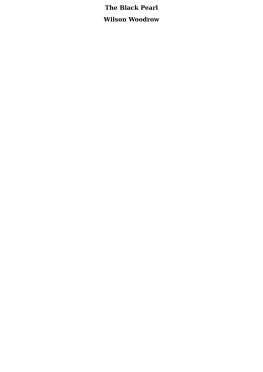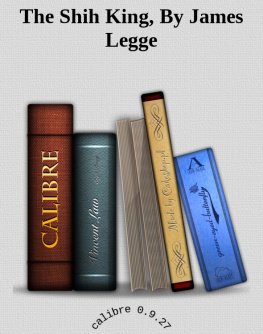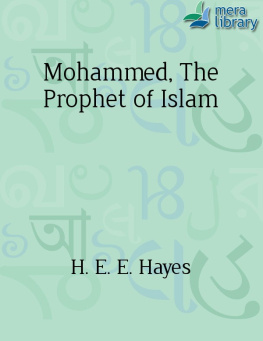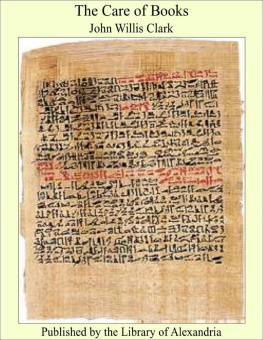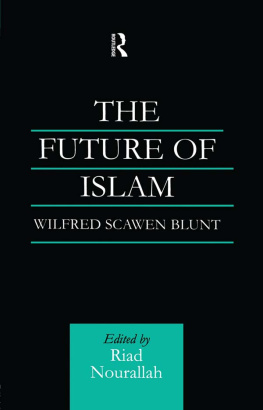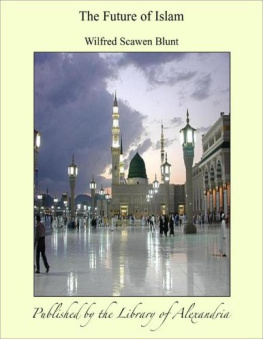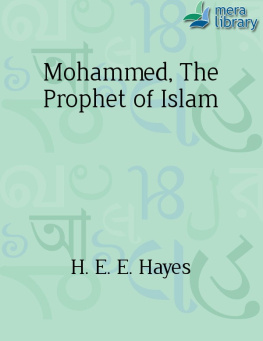The Project Gutenberg EBook of The Future of Islam, by Wilfred Scawen Blunt
This eBook is for the use of anyone anywhere at no cost and with
almost no restrictions whatsoever. You may copy it, give it away or
re-use it under the terms of the Project Gutenberg License included
with this eBook or online at www.gutenberg.net
Title: The Future of Islam
Author: Wilfred Scawen Blunt
Release Date: December 3, 2005 [EBook #17213]
Language: English
*** START OF THIS PROJECT GUTENBERG EBOOK THE FUTURE OF ISLAM ***
Produced by Marilynda Fraser-Cunliffe, Martin Pettit and
the Online Distributed Proofreading Team at
http://www.pgdp.net (This file was made using scans of
public domain works from the University of Michigan Digital
Libraries.)
THE FUTURE OF ISLAM
BY
WILFRID SCAWEN BLUNT
"La taknatu addurru yontharu akduhu
Liauda ahsana fin nithami wa ajmala."
"Fear not. Often pearls are unstrung
To be put in better order."
Published by permission of the Proprietors of the "Fortnightly Review"
LONDON
KEGAN PAUL, TRENCH & CO., 1, PATERNOSTER SQUARE
1882
CONTENTS
- PREFACE.
- CHAPTER I.
- Census of the Mohammedan World. The Haj
- CHAPTER II.
- The Modern Question of the Caliphate
- CHAPTER III.
- The True MetropolisMecca
- CHAPTER IV.
- A Mohammedan Reformation
- CHAPTER V.
- England's Interest in Islam
PREFACE.
These essays, written for the Fortnightly Review in the summer and autumn of 1881, were intended as first sketches only of a maturer work which the author hoped, before giving finally to the public, to complete at leisure, and develop in a form worthy of critical acceptance, and of the great subject he had chosen. Events, however, have marched faster than he at all anticipated, and it has become a matter of importance with him that the idea they were designed to illustrate should be given immediate and full publicity. The French, by their invasion of Tunis, have precipitated the Mohammedan movement in North Africa; Egypt has roused herself for a great effort of national and religious reform; and on all sides Islam is seen to be convulsed by political portents of ever-growing intensity. He believes that his countrymen will in a very few months have to make their final choice in India, whether they will lead or be led by the wave of religious energy which is sweeping eastwards, and he conceives it of consequence that at least they should know the main issues of the problem before them. To shut their eyes to the great facts of contemporary history, because that history has no immediate connection with their daily life, is a course unworthy of a great nation; and in England, where the opinion of the people guides the conduct of affairs, can hardly fail to bring disaster. It should be remembered that the modern British Empire, an agglomeration of races ruled by public opinion in a remote island, is an experiment new in the history of the world, and needs justification in exceptional enlightenment; and it must be remembered, too, that no empire ever yet was governed without a living policy. The author, therefore, has resolved to publish his work, crude as it is, without more delay, in the hope that it may be instrumental in guiding the national choice. He is, nevertheless, fully aware of its defects both in accuracy and completeness, and he can only hope that they may be pardoned him in view of the general truth of the picture he has drawn.
Since the last of these essays was written, their author has returned to Egypt, and has there had the satisfaction of finding the ideas, vaguely foreshadowed by him as the dream of some few liberal Ulema of the Azhar, already a practical reality. Cairo has now declared itself as the home of progressive thought in Islam, and its university as the once more independent seat of Arabian theology. Secured from Turkish interference by the national movement of the Arabs, the Ulema of the Azhar have joined heart and soul with the party of reform. The importance of this event can hardly be overrated; and if, as now seems probable, a liberal Mohammedan Government by a free Mohammedan people should establish itself firmly on the Nile, it is beyond question that the basis of a social and political Reformation for all Islam has been laid. It is more than all a hopeful sign that extreme moderation with regard to the Caliphate is observed by the Egyptian leaders. Independence, not opposition, is the motto of the party; and no rent has been made or is contemplated by them in the orthodox coat of Islam. Abd el Hamid Khan is still recognized as the actual Emir el Mumenin, and the restoration of a more legitimate Caliphate is deferred for the day when its fate shall have overtaken the Ottoman Empire. This is as it should be. Schism would only weaken the cause of religion, already threatened by a thousand enemies; and the premature appearance of an Anti-Caliph in Egypt or Arabia, however legitimate a candidate he might be by birth for the office, would divide the Mohammedan world into two hostile camps, and so bring scandal and injury on the general cause. In the meantime, however, liberal thought will have a fair field for its development, and can hardly fail to extend its influence wherever the Arabic language is spoken, and among all those races which look on the Azhar as the centre of their intellectual life. This is a notable achievement, and one which patience may turn, perhaps in a very few years, to a more general triumph. There can be little doubt now that the death of Abd el Hamid, or his fall from Empire, will be the signal for the return of the Caliphate to Cairo, and a formal renewal there by the Arabian mind of its lost religious leadership.
To Mohammedans the author owes more than a word of apology. A stranger and a sojourner among them, he has ventured on an exposition of their domestic griefs, and has occasionally touched the ark of their religion with what will seem to them a profane hand; but his motive has been throughout a pure one, and he trusts that they will pardon him in virtue of the sympathy with them which must be apparent in every line that he has written. He has predicted for them great political misfortunes in the immediate future, because he believes that these are a necessary step in the process of their spiritual development; but he has a supreme confidence in Islam, not only as a spiritual, but as a temporal system the heritage and gift of the Arabian race, and capable of satisfying their most civilized wants; and he believes in the hour of their political resurgence. In the meantime he is convinced that he serves their interests best by speaking what he holds to be the truth regarding their situation. Their day of empire has all but passed away, but there remains to them a day of social independence better than empire. Enlightened, reformed and united in sympathy, Mussulmans need not fear political destruction in their original homes, Arabia, Egypt, and North Africa; and these must suffice them as a Dar el Islam till better days shall come. If the author can do anything to help them to preserve that independence they may count upon him freely within the limits of his strength, and he trusts to prove to them yet his sincerity in some worthier way than by the publication of these first essays.
Cairo , January 15th, 1882.
THE FUTURE OF ISLAM.
CHAPTER I.
CENSUS OF THE MOHAMMEDAN WORLD.
THE HAJ.
In the lull, which we hope is soon to break the storm of party strife in England, it may not perhaps be impossible to direct public attention to the rapid growth of questions which for the last few years have been agitating the religious mind of Asia, and which are certain before long to present themselves as a very serious perplexity to British statesmen; questions, moreover, which if not dealt with by them betimes, it will later be found out of their power to deal with at all, though a vigorous policy at the present moment might yet solve them to this country's very great advantage.

